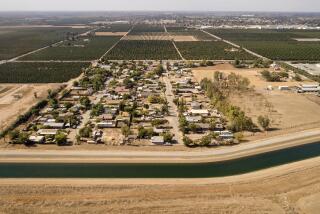Editorial: Too many CEQA exemptions
Another legislative session in Sacramento, another CEQA exemption. This time, lawmakers passed a trailer bill with the state budget that exempts water recycling, stormwater capture and other drought-related water projects from the California Environmental Quality Act.
In theory, the exemptions will allow valuable water-saving projects to be built with fewer procedural hurdles and less risk of being held up by lawsuits, and thereby deliver drought relief more quickly. In practice, the exemptions probably won’t have a significant effect. Projects that use federal dollars will still need to comply with the federal government’s version of CEQA. And some water agencies may still choose to do the community outreach and analysis typically required by CEQA to ensure that the public is on board. Even so, the Santa Clara Water District estimates that an exemption will cut a year off a project to expand its water recycling plant. The Los Angeles Department of Water and Power figures it could shave a few months off some projects to capture stormwater.
The real concern is that lawmakers keep carving out CEQA exemptions for favored projects. They’ve given football stadiums, basketball arenas, solar projects and Apple Inc.’s new Cupertino campus a guaranteed fast track through CEQA lawsuits, which can otherwise tie up projects for years. In addition to the water project exemptions, lawmakers OKd trailer bills to extend deadlines so that two projects — an arena for the Golden State Warriors basketball team in San Francisco and a high-rise development on the Sunset Strip in Hollywood — could also get expedited legal review. And some have called for similarly special status for highway and transportation projects.
Yet legislators and Gov. Jerry Brown show no interest in comprehensive CEQA reform that would give all projects — not just lawmakers’ picks — the opportunity for streamlined review. Instead, they seem perfectly happy to create a two-tier system in which projects with enough lobbyists or political supporters can get on the fast track, while other projects get stuck in the slow lane.
Certainly it will be difficult to craft a sensible, reasonable reform package that maintains the fundamental purpose of CEQA, which is to ensure that decision-makers have the analysis and public feedback they need to make intelligent choices. Brown himself has said that CEQA reform is “the Lord’s work.” But it seems he and his colleagues in Sacramento are more interested in using their power to grant exemptions rather than to fix the underlying problems.
Follow the Opinion section on Twitter @latimesopinion and Facebook
More to Read
A cure for the common opinion
Get thought-provoking perspectives with our weekly newsletter.
You may occasionally receive promotional content from the Los Angeles Times.






